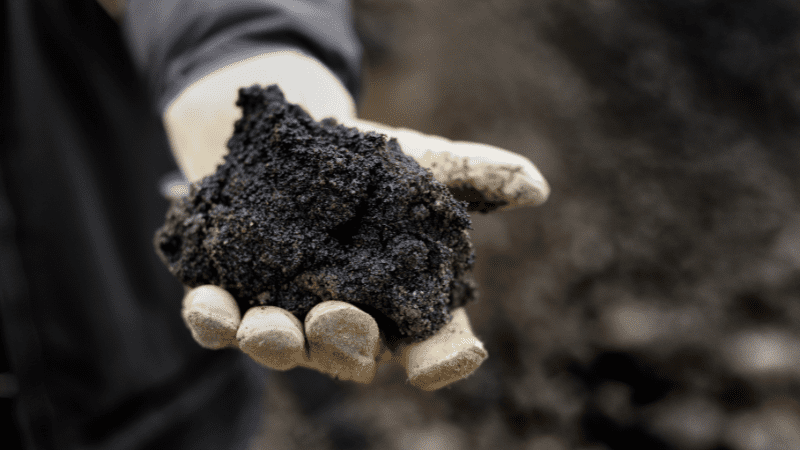By David Polansky, February 26, 2024
Strategic energy resources have long been associated with some of the world’s most odious regimes. Above the surfaces that cover rich mineral and fossil fuel deposits one finds religious fanatics, brutal tyrants, and corrupt kleptocracies. And yet with one resource rich nation in particular we find not Wahhabism or gangsterism but Mounties and maple syrup.
Canada is the world’s second-largest country and its lands and territorial waters hold some of the world’s most substantial oil and gas reserves. Looking at its energy policies, one might think it was Belgium. Canada’s resource wealth would seem to be a case of the good guys winning for once. Why then does Canada flee in shame from its geological (and geopolitical) situation?
The answer is that Canada’s elites have long ceased to think in terms of its national interests or fiscal priorities but have adopted a naïve environmental dogmatism. Since it ratified the Paris Agreement in 2015, Canada has embraced an ambitious, top-down, international agenda to achieve “net-zero” emissions and limit global climate change.
But the fact is that, despite its size, In absolute terms, its output has risen marginally over the past half century, even as its population has nearly doubled. And embracing this climate agenda is hardly a perfunctory matter: it will continue to result in declining incomes for the average Canadian as well as a weakened trade balance for Canada as a whole. Canada’s economy is being sacrificed on the altar of elite preferences divorced from the realities of how Canadians actually heat our homes or put food on our tables.
An honest assessment of Canada’s flippant rejection of its generous natural resource inheritance looks more like serial masochism than virtue.
In the wake of Russia’s invasion of Ukraine and the global sanctions it triggered, The irony is that with so much of Russia’s supply coming offline, Canada could have had a remarkable opportunity to fill the vacuum with its own production capacity.
Despite being the world’s sixth-largest producer of natural gas, Canada lacks even a single export terminal for LNG. When critics of Canadian LNG production pointed to the unfeasibility of meeting overseas demand, despite the entreaties of the Germans and other Europeans, they were only technically correct. Canada couldn’t easily meet overseas demand because our regulatory regime has held up the construction of as many as 18 proposed LNG projects over the past decade, largely due to climate concerns.
Ironically, Germany—the continent’s greatest industrial power—needed to reactivate discontinued coal plants to meet its energy demands (hardly an ideal outcome from an environmental standpoint).
Much of the shortfall caused by sanctions on Russia was also made up by LNG contributions from Norway—whose leaders have maintained that reducing LNG output would only cede the market to authoritarian regimes with weaker regulatory controls around their energy industries from both environmental and human rights standpoints. Thankfully, Norway’s government moved forward with LNG production and export despite past pressure from environmentalist in the European Union that attempted to curtail its fossil fuel extraction.
Canada could have followed Norway’s level-headed approach and in that could have helped replace Russian oil in the aftermath of the Ukraine invasion. The curtailing of Canada’s energy infrastructure is not imposed by a physical limitation in the world, nor was it commanded from the heavens; it was ordered by the Canadian Net-Zero Emissions Accountability Act of 2021, supplemented by ambitious plans promulgated by Ottawa to reshape the institutions and practices of the entire country in pursuit of this quixotic goal. Not just the oil-and-gas sector, but housing, construction, agriculture, etc. must bend before Net Zero.
One can already hear activist outrage that, “to oppose this agenda is to choose temporary profits over the preservation of human life and the planet that supports it.” This rhetoric has proven effective in advancing environmental policies but it is also a false dichotomy, as it treats the dilemma as one of “good vs. greed” rather than one of complex competing goods.
A society that has signed on to this sort of imposed austerity is one with less money for infrastructure, entrepreneurship, healthcare, and defense. A lack of investment in these sectors also brings serious and immediate human costs. And further, the real issue is not the value of environmental stewardship or of taking steps to moderate consumption—both of which are worthy goals in and of themselves—but of blindly adhering to preselected targets at all costs. These apparently unassailable commitments have deprived Canada of the kind of flexible management of strategic interests that prudent political leadership requires.
Indeed, the unrealism of these climate ideals has produced systemic dissembling across the country’s major institutions, given the pressure to comply regardless of the efficacy of their practices. In other words, the fanaticism of environmental elitists has made people unwilling to debate the issues at hand or to even discuss the serious human and economic costs of poorly considered environmental policies.
The Environmental, Social, and Governance (ESG) model has had the effect of placing certain questions effectively beyond the reach of politics. But questions of policy—as environmental and energy questions surely are—are by their nature political; they have inevitable tradeoffs that should be a matter of debate with an eye to our collective interests.
Instead, we have an intolerant environmental elitism that obstructs the open and honest public deliberation that is the hallmark of democratic politics. A more truthful and practical approach wouldn’t necessarily promote any one policy, but it would allow for public discussion that recognizes the genuine toll that environmental policy takes on Canada’s domestic well-being and our standing in the world.
David Polansky is a Toronto-based writer and political theorist. Read him at strangefrequencies.co or find him on X @polanskydj.






